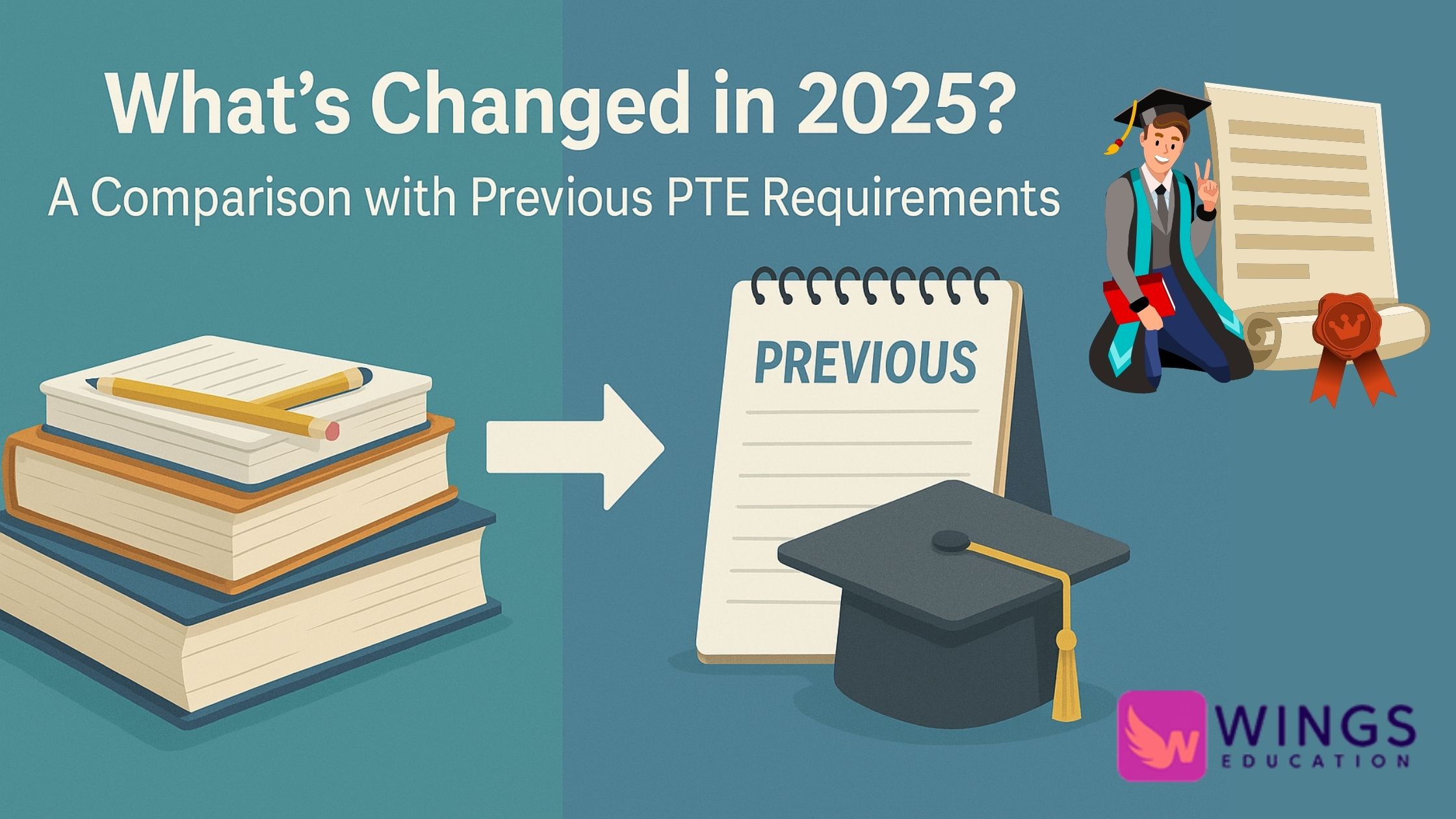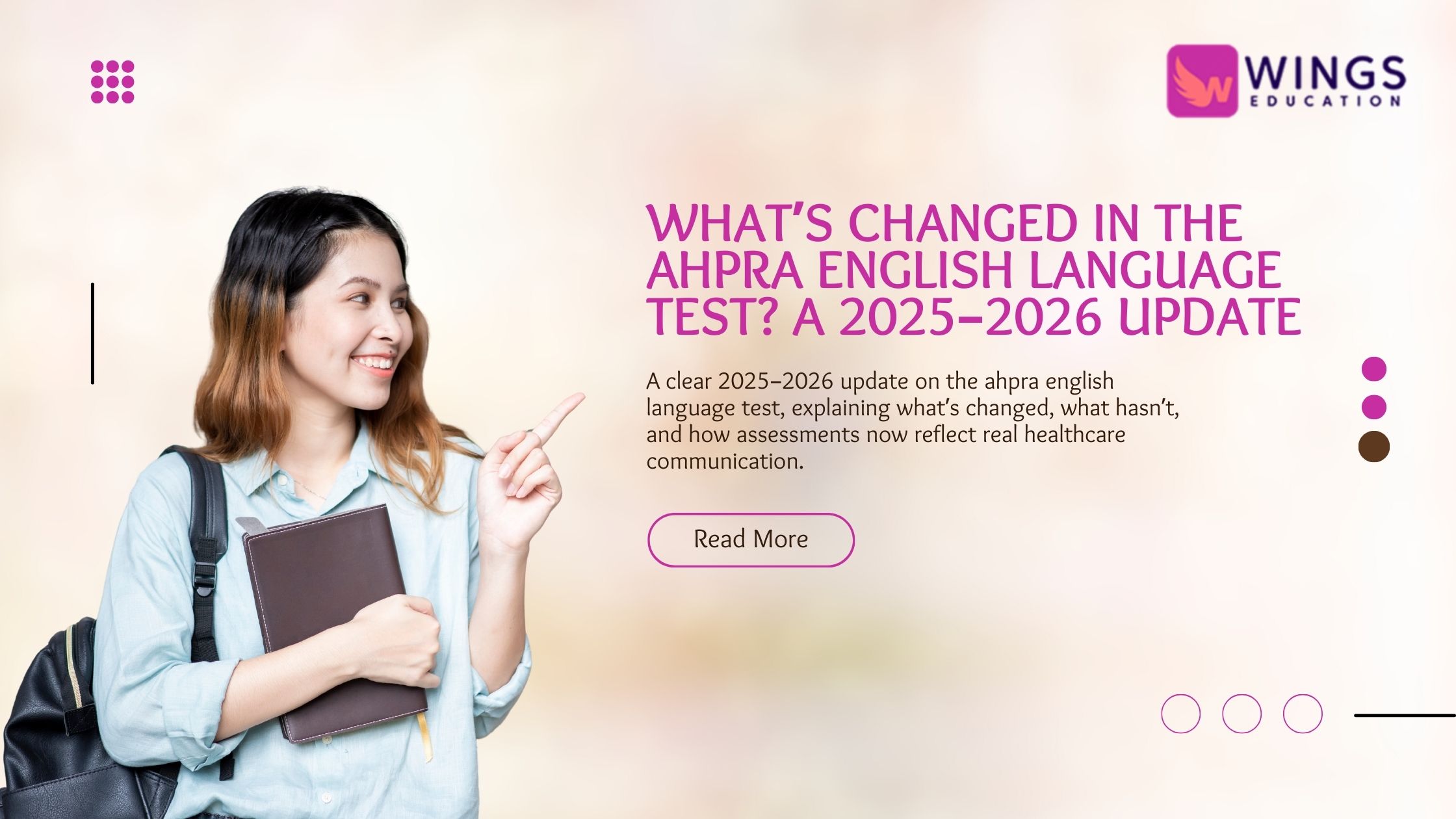
What’s Changed in 2025? – A Comparison with Previous PTE Requirements
The Nursing and Midwifery Board of Australia (NMBA) made some important changes to its English language requirements starting from 18 March 2025. These changes directly affect those who plan to use PTE Academic as their proof of English proficiency when applying for registration as a nurse or midwife in Australia.
This article will explain what has changed in 2025 compared to the previous requirements. We’ll break it down in simple language so it’s easy to understand, especially if you’re preparing for the PTE test.
Understanding the Role of English Proficiency in NMBA Registration
Before diving into the changes, let’s briefly understand why English skills matter so much.
To work safely in Australia’s healthcare system, communication is essential. Nurses and midwives need to speak clearly, understand patient needs, follow instructions, and write detailed reports. Because of this, the NMBA requires proof that you can communicate well in English before you can be registered.
One of the accepted tests for this is the PTE Academic (Pearson Test of English Academic). The PTE is a computer-based English test that checks your abilities in Speaking, Listening, Reading, and Writing.
Previous PTE Requirements (Before March 2025)
Before the 2025 update, NMBA had clear but slightly more flexible rules for PTE Academic. Here’s a summary of what the previous rules looked like:
- You had to score at least 65 in each component (Listening, Reading, Writing, and Speaking).
- The test scores had to be achieved in no more than two sittings within a 6-month period.
- In both sittings:
- No component could be below 58.
- You needed to achieve the required scores across the four skills, even if spread across the two tests.
In short, you had a little room to balance out scores between two tests if you didn’t get all scores in one sitting.
What Has Changed in 2025?
In March 2025, the NMBA introduced a new English language registration standard. These changes were made to simplify the requirements, align with other professions, and make it clearer for applicants. Let’s look at what’s different now.
1. New Minimum Score Requirements
The biggest change is in the required scores for each skill:
- Listening: 66
- Reading: 66
- Speaking: 66
- Writing: At least 56 (lower than the other components)
The overall required score is now 66, but the Writing section has a lower threshold.
2. Writing Score Requirement Is Now Lower
Previously, you had to score 65 in Writing, just like the other skills. Now, you only need 56 in Writing. This gives some relief to candidates who struggle with writing tasks like essays and summaries.
However, experts still recommend aiming for 66 or higher in all parts to avoid complications or second sittings.
3. Test Sitting Rules Have Been Adjusted
While candidates can still use two sittings, there are stricter rules now:
- The two sittings must be taken within 12 months (previously, this was just 6 months).
- You must:
- Achieve a minimum score of 66 in Listening, Reading, and Speaking across the two tests.
- Get at least 56 in Writing in both sittings.
- Ensure no score is below these minimums in either test.
This means combining two sittings is still possible, but the standards are tighter than before.
4. One Sitting Is Preferred
While two sittings are allowed, NMBA strongly encourages applicants to meet all the score requirements in one test. It makes the process faster, easier to verify, and shows consistent English ability.
Old vs New PTE Requirements – Side-by-Side Comparison
| Requirement | Before March 2025 | After March 2025 |
| Minimum overall score | None specified, only individual scores | 66 |
| Listening | 65 | 66 |
| Reading | 65 | 66 |
| Speaking | 65 | 66 |
| Writing | 65 | 56 |
| Test sittings allowed | Up to 2, within 6 months | Up to 2, within 12 months |
| Minimum score in any component (if combining) | 58 | 66 (L, R, S) & 56 (W), in both sittings |
Why Did NMBA Make These Changes?
The NMBA aims to balance safety, clarity, and fairness with its standards. Here are some reasons behind the 2025 update:
- Aligning with international benchmarks: The updated scores better reflect what is needed for safe practice in English-speaking environments.
- Simplifying the process: The new structure is easier to understand—especially for international candidates.
- Flexibility for candidates: Lowering the writing score requirement helps those who are otherwise strong in English but struggle slightly with written expression.
- Ensuring consistent skills: Raising the bar for Listening, Reading, and Speaking ensures candidates are prepared to engage with patients and colleagues confidently.
What This Means for Test Takers
These changes are important for anyone planning to apply for NMBA registration using PTE Academic. Here’s what you should keep in mind:
1. Aim for Consistency Across All Skills
Now more than ever, it’s important to be strong in all areas—especially Listening, Reading, and Speaking. You need to score at least 66 in each of these, so focus your preparation accordingly.
2. Don’t Ignore Writing – Even If 56 Is Enough
While Writing has a lower benchmark, that doesn’t mean it should be neglected. Many candidates still aim for 66 or higher in Writing to avoid needing a second test and to show overall English strength.
3. Prepare to Succeed in One Sitting
Although combining scores is allowed, aiming to get everything in one test is less stressful and more efficient. Prepare with full mock tests, build your stamina, and develop test strategies to help you get your best score in one go.
4. Know Your Test Validity
Your scores must be less than two years old at the time of your application. Plan your test date carefully so your results don’t expire before your registration is processed.
How to Adjust Your Preparation for the 2025 Changes
With new requirements comes the need for smarter preparation. Here are some practical tips:
– Focus on Skill-Building
Identify your weak areas early. If Listening or Speaking is lower than 66, make that your top priority. Use targeted practice exercises, mock tests, and expert feedback.
– Practice Full-Length Tests
Take full mock tests regularly under timed conditions. This helps improve speed, accuracy, and focus.
– Use Scoring Tools or Tutors
Use platforms that provide automated PTE scoring, or consider working with a PTE tutor who understands the new NMBA standards.
– Time Your Retests Strategically
If you don’t get the required scores the first time, make sure to retake the test within 12 months of the first one. Also, review your previous test performance to avoid repeating the same mistakes.
Conclusion: Understanding the Shift and Moving Forward
The NMBA’s revised English language standard in 2025 makes the process of registration more transparent. For PTE Academic test takers, it brings both opportunities and challenges.
The lowered Writing score requirement gives some breathing room, but the raised expectations for Listening, Reading, and Speaking mean that preparation must be solid and strategic. While combining scores is still an option, aiming to succeed in one sitting is the best approach.
Whether you’re taking PTE Academic for the first time or planning a retest, staying informed about these changes will help you plan better and perform more confidently. Take your time to prepare well, build your English skills across all areas, and you’ll be well on your way to achieving your dream of working as a nurse or midwife in Australia.























